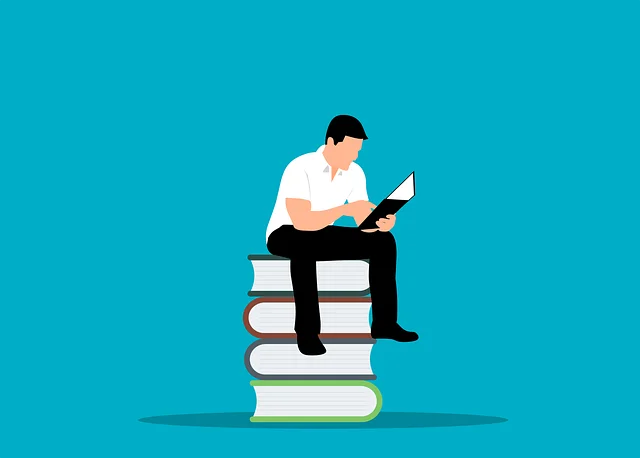Why it’s important to fight emotional dependency on friends

Friendship is an essential component of the life of every individual because it satisfies fundamental human needs like those for communication, affection, and moral support. However, an unhealthy relationship develops between friends when there is a dependence on one another on an emotional level. In any relationship, erasing obvious limits will sooner or later make the boundaries break apart painfully. It is essential to acquire the skills necessary to manage one’s emotional dependency on others to avoid situations like these and keep healthy communication channels open. To assist you in accomplishing that goal, we have compiled some useful tips for you.
How to tell if an emotional dependency has arisen in a friendship

It is extremely important to have a solid understanding of the differences between the concepts of “attachment” and “de” to dependency able to differentiate between a healthy friendship and an emotional dependency relationship.
Attachment is a natural phenomenon that occurs between individuals who value one another but who also respect the personal boundaries of the other and who do not experience any discomfort when communication between them is temporarily disrupted.
A dependency is a form of unhealthy attachment that can cause various significant issues in interpersonal relationships. Not only is it possible for people in dependent friendships to violate each other’s boundaries, but they may also experience feelings of inferiority when they are forced to be alone with just themselves. The following is a list of red flags that you may be involved in a dependent friendship:
- the focus shifts to the other person in the conversation;
- It is not only difficult for you to make important decisions on your own but also decisions that are relatively simple;
- keeping in touch with a friend regularly is necessary to preserve a friendship;
Both emotional and physical ailments can manifest as a consequence of a long separation—for instance, a gloomy disposition, headaches, and an unreasonable sadness.
How to deal with emotional dependency
If one person is willing to put in the effort to improve themselves, emotional dependency friendships could very well turn into healthy relationships.
1. Recognize the nature of the problem
Understanding the nature and scope of the problem constitutes an essential first step toward resolving it. To accomplish this, you will need to investigate the dynamics of the relationship you share with your significant other. Consider the frequency and intensity of the uncomfortable feelings of isolation you experience when you are alone. Also, determine the foundational principles upon which your relationships with others, including friendships, are built.
2. Do not try to suppress the feelings you are experiencing

Some psychologists believe that people who tend to hold their feelings in and suppress them are more likely to develop an emotional dependency. Because they find it difficult to assert their personal boundaries and point out to others when they violate those boundaries, they end up getting involved in unhealthy friendships and romantic relationships without even realizing it.
3. It is important to keep in mind that you are not responsible for the emotions and expectations of other people
In emotionally dependent friendships, it is common practice for both parties to place high demands and expectations upon one another. Remember that you are the only person responsible for your own life and how you feel if you ever find yourself in a situation like this.
It is not necessary to be someone’s closest confidant or to maintain constant and constant close contact with that person to be considered a good friend. First, you need to examine your life and ensure that everything turned out how you wanted it to.
4. Slowly fight the dependency
If you have recently realized that you are emotionally involved with a close friend and are looking for ways to deal with this reality, keep in mind that the issue cannot be resolved very quickly. Your first step should be to make an effort to talk to him or her about what it is about the trajectory of your relationship that is giving you cause for concern. If that doesn’t help change the situation, then you need to find a way to gradually distance yourself from the person who is making you feel bad.
5. Always make time to show yourself some love

When we let ourselves be consumed by the issues and feelings of others, we frequently forget to take care of ourselves. However, to live in harmony with yourself and easily deal with any challenges, it is essential to have the ability to appreciate both yourself and the resources you have available to you.
It is also essential to improve your sense of self-worth to rid your life of people who manipulate you and their influence. In addition, we shouldn’t be afraid to cut off communication with people who bring unfavourable impacts into our lives, and this is something we should do.
6. Accept responsibility for your actions and your life
It is not a simple task to acquire the ability to assume responsibility for one’s own life. Because they are afraid that they won’t be able to manage things on their own, many people stay in relationships where they are co-dependent for years. However, there is still hope for a solution to the problem.
It would help if you did the following to rid yourself of your toxic environment and overcome your emotional dependency on your friends:
- Put an end to pointing the finger of blame at other people for your problems;
- Figure out your objectives and plans for your life;
- Put yourself in an environment where you can find joy in the little things;
- Stop being afraid of being turned down and start developing your ability to say “no.”
Putting all of this into practice is, without a doubt, going to be much more challenging than reading it. It will take some time, and there is a possibility that you will need to work with a therapist. Regardless, the possibility of achieving independence from whoever is worth the effort.




